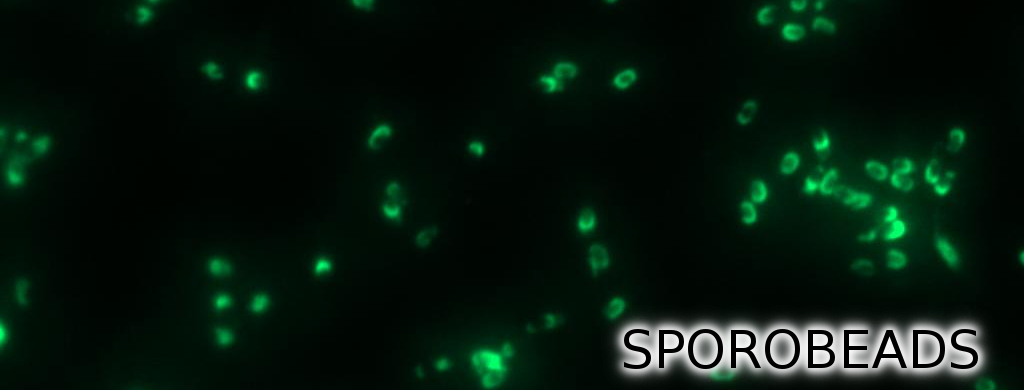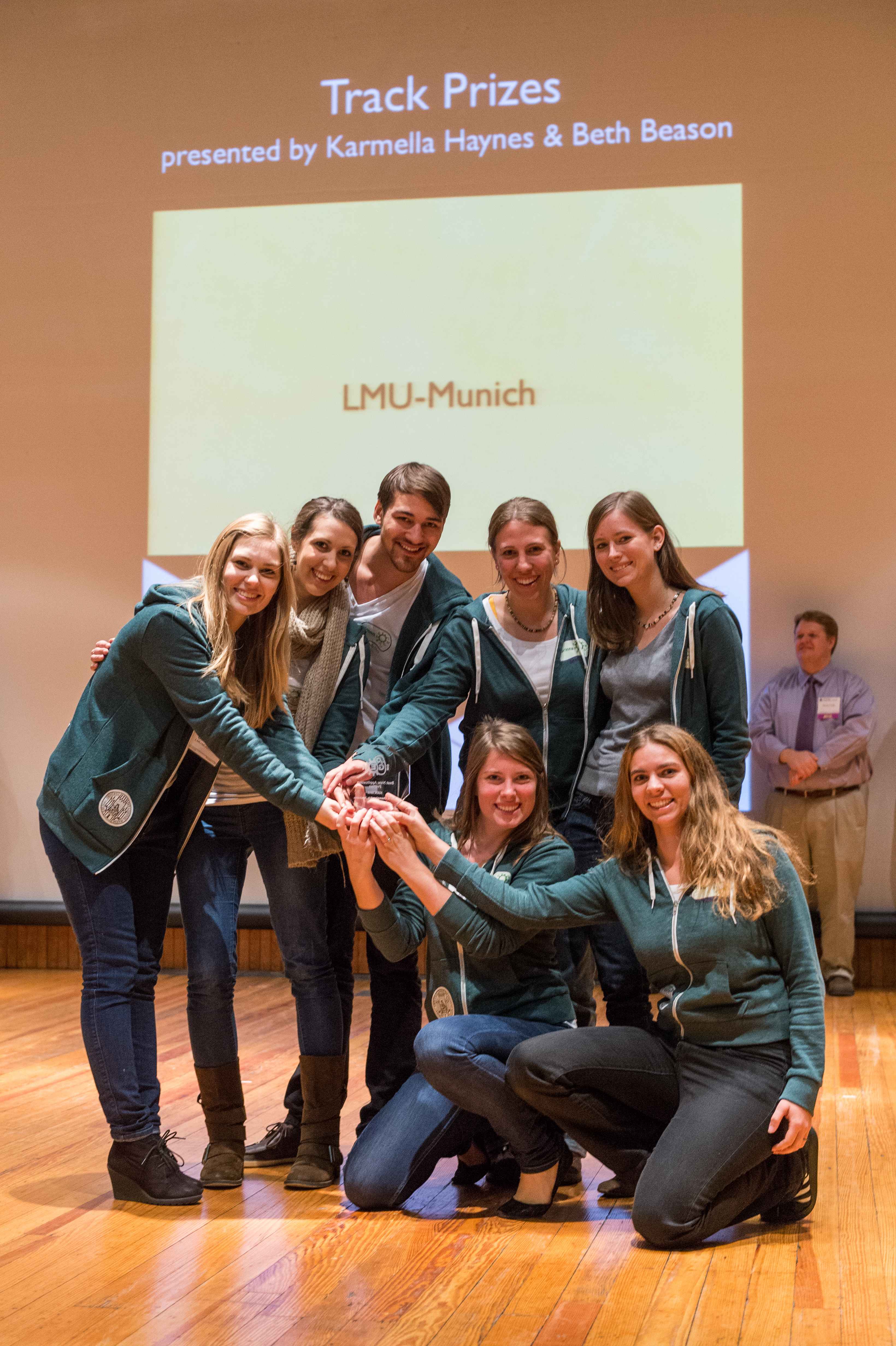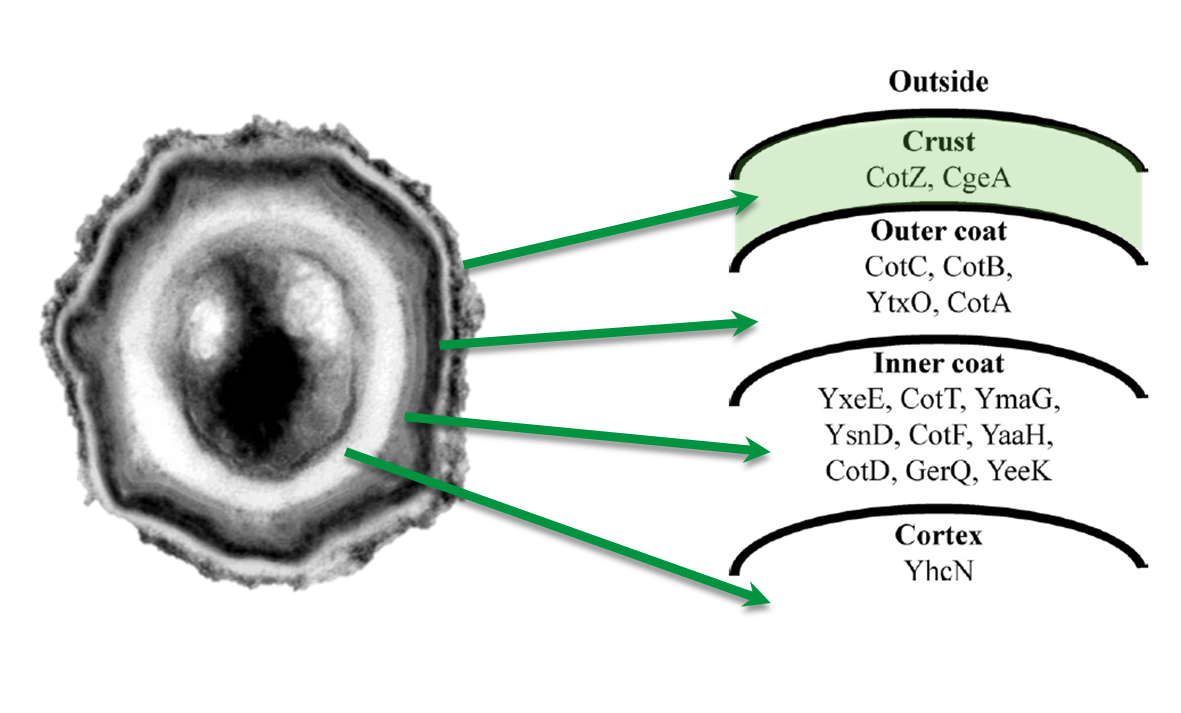Team:LMU-Munich/Spore Coat Proteins/Background

The LMU-Munich team is exuberantly happy about the great success at the World Championship Jamboree in Boston. Our project Beadzillus finished 4th and won the prize for the "Best Wiki" (with Slovenia) and "Best New Application Project".
[ more news ]



Scientific Background
Sporobeads are Bacillus subtilis spores modified in a way that they can be used as a platform for individual protein display. The aim of this module is to create these spores that display fusion proteins on their surface. There are several different proteins forming the spore coat layers of B. subtilis spores (Fig. 1). The outermost layer, the so-called spore crust, is composed of two proteins, CotZ and CgeA ([http://www.ncbi.nlm.nih.gov/pubmed?term=imamura%20et%20al.%202011%20spore%20crust Imamura et al., 2011]). This is why we used them to create functional fusion proteins to be expressed on our Sporobeads.
|
Crust Protein Genes Organization
The gene cgeA is located in the cgeABCDE cluster and is expressed from its own promoter PcgeA. The cluster cotVWXYZ contains the gene cotZ which is cotranscribed with cotY and expressed from the promoter PcotYZ. Another promoter of this cluster, PcotV, is responsible for the transcription of the other three genes (Fig. 2). Those three promoters were evaluated with the lux reporter genes ([http://partsregistry.org/Part:BBa_K823025 pSBBs3C-luxABCDE]) to analyze their strength and the time point of their activation (see data). Based on this data, two of the three promoters could be used for expression of spore crust fusion proteins.
|
 "
"





